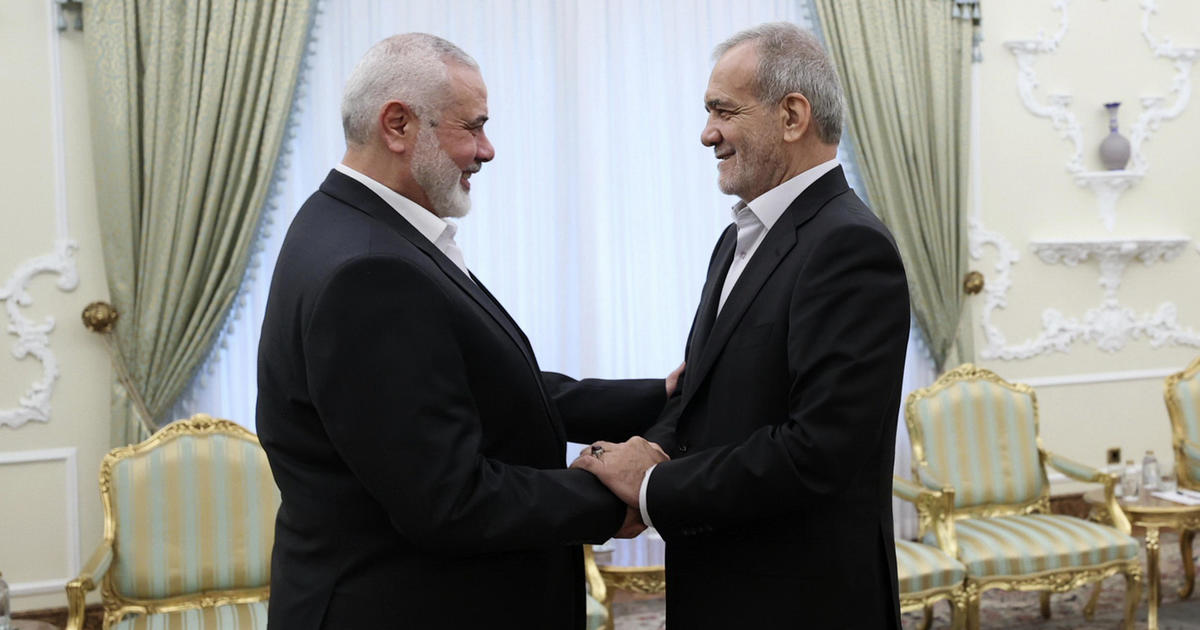The news of the assassination of Hamas leader Ismail Haniyeh in Tehran, as reported by Iran’s paramilitary Revolutionary Guard, has sent shockwaves across the region. The incident, which took place on Tuesday, has raised suspicions of Israeli involvement, given their past threats against Haniyeh and other Hamas leaders.
Haniyeh, who was the overall political leader of Hamas, had not been in Gaza for years and was primarily based in Qatar, where Hamas has its main political office outside of Gaza. This distance from the conflict zone did not shield him from the long arm of his enemies, as news of his assassination spread rapidly.
The details surrounding Haniyeh’s death remain scant, with Iranian state television reporting the incident early Wednesday. Analysts and experts immediately pointed fingers at Israel, known for its covert operations and targeted assassinations carried out by the Mossad intelligence agency.
Israel, notorious for its years-long assassination campaign targeting Iranian nuclear scientists and other individuals associated with Iran’s atomic program, has a history of such operations. In 2020, a top Iranian military nuclear scientist, Mohsen Fakhrizadeh, was killed in a similar manner, with a remote-controlled machine gun targeting him outside Tehran.
The timing of Haniyeh’s assassination is particularly delicate, as the Biden administration has been pushing for a temporary ceasefire and a hostage-release deal between Hamas and Israel. CIA Director Bill Burns was in Rome recently to engage in talks with senior Israeli, Qatari, and Egyptian officials, while Brett McGurk, the White House Coordinator for the Middle East and North Africa, is also in the region for discussions with U.S. partners.
The assassination of Haniyeh adds another layer of complexity to an already volatile situation in the region. With Hamas and Israel engaged in a deadly conflict that has claimed the lives of thousands of Palestinians and Israelis, the targeted killing of a senior Hamas leader could further escalate tensions and lead to retaliatory actions.
Haniyeh’s death comes on the heels of a series of tragic events for his family, with three of his sons being killed in an Israeli airstrike on Gaza earlier in the year. The strike, which targeted a vehicle near a home belonging to the Haniyeh family, was acknowledged by Haniyeh himself, underscoring the personal toll that the conflict has taken on his family.
Despite the loss of Haniyeh, Hamas remains a potent force in Gaza, with some of its senior leaders still believed to be in the region. Among them is Yahya Sinwar, Hamas’ top leader in the Gaza Strip and a key figure in the group’s military wing, the Al-Qassam Brigades. Sinwar, along with other Hamas leaders, remains on Israel’s wanted list, highlighting the ongoing animosity between the two sides.
The White House has yet to issue a statement on Haniyeh’s assassination, but the implications of this event are likely to reverberate across the region. With ongoing efforts to broker a ceasefire and release hostages, the targeted killing of a senior Hamas leader could complicate diplomatic efforts and potentially lead to further violence.
As the situation continues to unfold, the world watches with bated breath, hoping for a resolution to the conflict that has cost so many lives and brought untold suffering to the people of Gaza and Israel. The assassination of Ismail Haniyeh serves as a grim reminder of the high stakes involved and the fragility of peace in the region.









